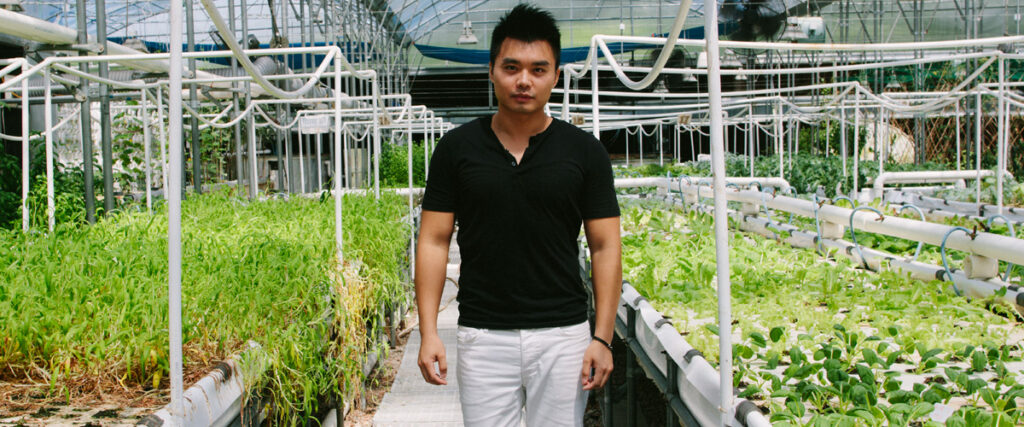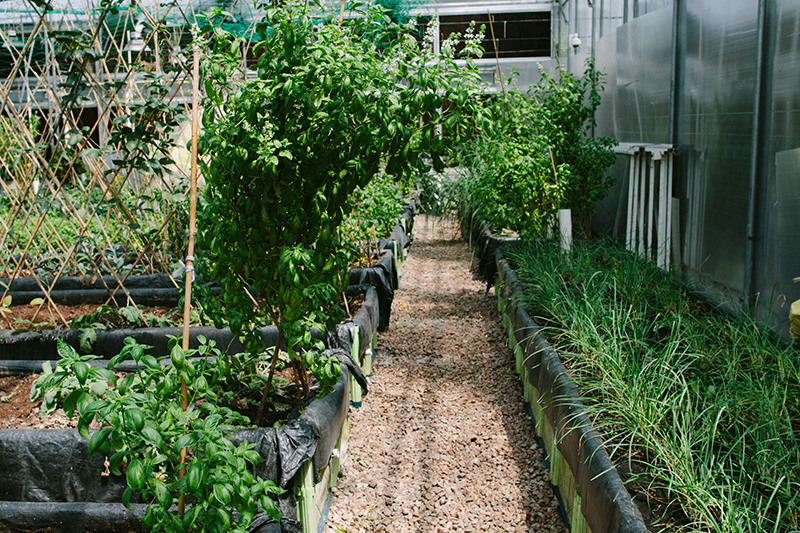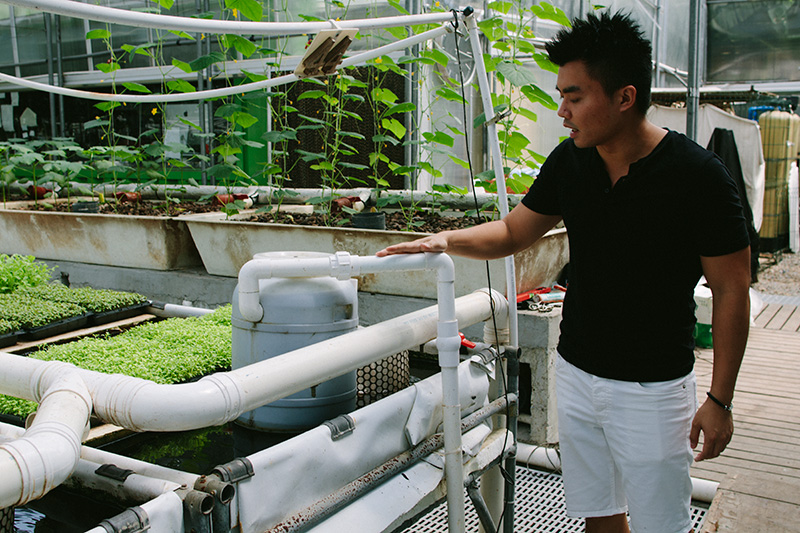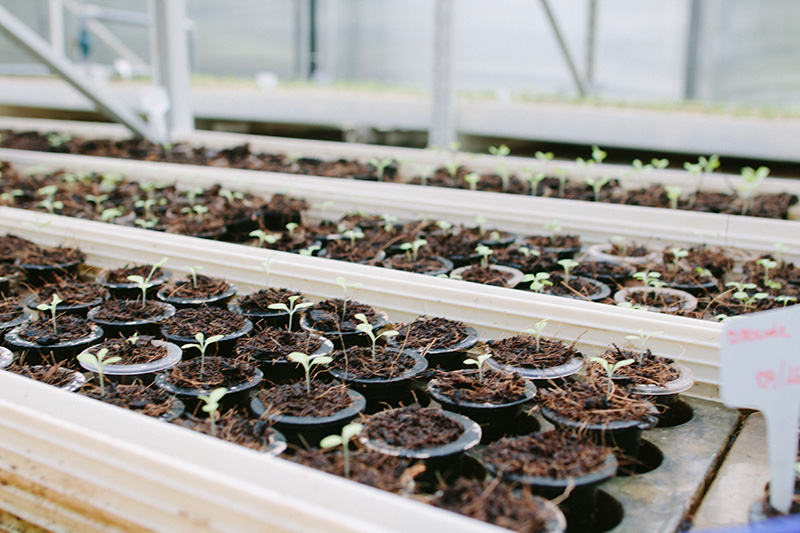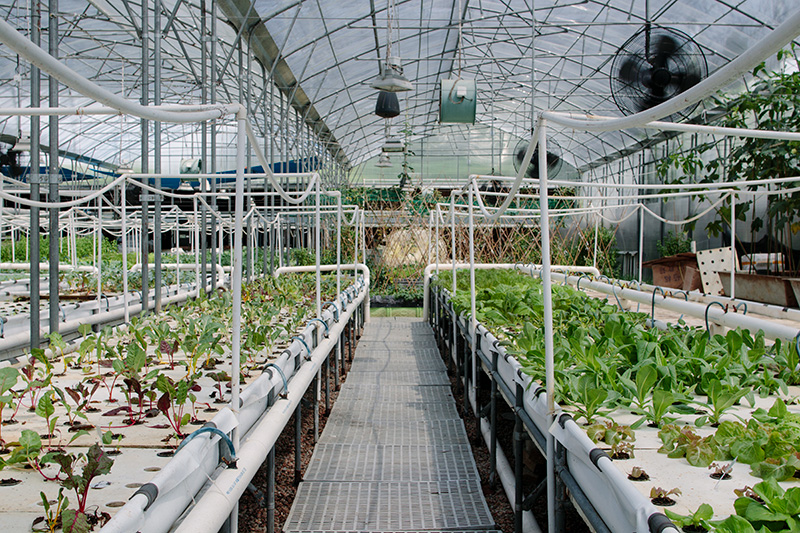With no former training in agriculture, read about Raymond Lok,the man behind Evergreens Republic, the first aquaponics farm to operate in Southeast Asia under USDA organic certification.
Established in 2015 by co-founder Raymond Lok, Evergreens Republic is the first and largest aquaponics farm to operate in Southeast Asia under the USDA organic certification. Initially, the concept began as an experiment without any intent for profit. With no professional training in agriculture let alone aquaponics, Ray started from scratch to design the system.
After studying in the States, Raymond came back to Hong Kong to help his parents in the manufacturing business, working with garments and plastics. As a side-interest, Raymond experimented with aquaponics, a method of using fish manure to provide nutrients that helps the growth of vegetables.
Intrigued by what he learnt as he began to investigate this method of farming, Ray took advantage of some space in his mother’s empty factory in Kwun Tong tand began to grow vegetables. Soon he spotted a gap in the market for organic produce and realised that there was an opportunity to turn his hobby into a business. “Organic is the future, but farming historically didn’t work in Hong Kong because of the rain and frequent typhoons,” he explains. “And yet, there’s a demand for organic vegetables in Hong Kong because most of the food we consume is imported from China, and people are concerned about where their food comes from.” Before long, this demand and interest played directly into his hands, and Ray was forced to move his project to a patch of land in Lau Fau Shan, New Territories with more scope for growth.
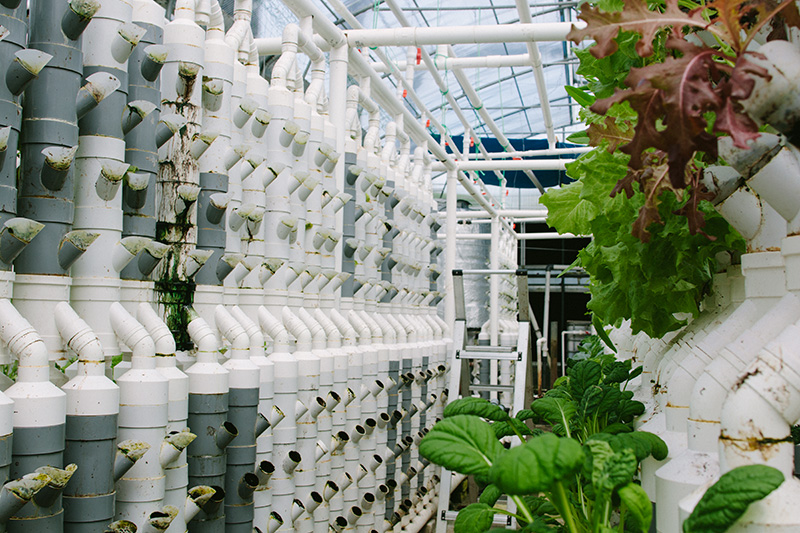
Whilst Ray may have happened on something with serious legs almost by accident, it doesn’t mean his road to making it a success has been quite so easy. With no prior experience in farming, Ray enrolled in a 4-day class to learn as much as he could about aquaponics in San Francisco, before coming home to put it into practice. “And It was tough because we had no idea about farming back then. It wasn’t easy at all!” He had to learn many lessons the hard way – not least to figure out how to create a farm that could withstand the Hong Kong weather. “In 2016, there were many typhoons which caused a lot of problems – there was a time when a huge rock flew in and broke the roof!”
Fast forward two years, however, and Ray is at the heart of Hong Kong’s farm-to-table movement and a leader in the city’s moves towards sustainability. He is convinced that, in spite of so many people thinking of our metropolis as the opposite, Hong Kong is in fact a perfect place for urban farming. A small island where everybody is reachable, he sees an increasingly captive audience of people becoming more and more concerned with the provenance of their food in a region that before paid little attention to such things. A big 95% of his customers are expats who order online, with some recommended to seek out his sort of produce by doctors who encourage healthy eating to combat diseases and illnesses like cancer. “We have people who fly in from China to visit our farm with a box to carry back home.”
Today, Evergreen Republic is quite the establishment, and Ray and his team have impressively worked out their own equations, systems and designs. “The system is 50/50 research and experiment. Aquaponics uses fish waste to feed the vegetables. The trick is to design a system that balances the fish and vegetables so the bacteria won’t fluctuate and the ammonium won’t go crazy—that’s the hard part,” he says. He isn’t alone when it comes to exploring urban agriculture in Hong Kong. Others, too, are trying their had at it – but he is ahead in terms of development and skills, with many others still in the experimental stage of set up. “There are 26 hydroponic companies in Hong Kong, but they have limited produce, and they don’t understand the level of commitment you have to make for it to work,” he explains.
In an industry that is constantly evolving, you also have to keep moving forward. Currently, Ray is looking at establishing container farms integrated with aquaponics to be deployed at specific destinations, giving him more reach and scope. And the young entrepreneur has set the stones for his first cannabis farm in the US, using aquaponics and NASA technology for growth. With the fundraising part of this project complete, he shares, “we are using similar technology to grow vegetables, so why not use it to grow cannabis?” Given what he has achieved so far, he may well make it happen.
Details
Telephone: +852 2472 0038
www.evergreensrepublic.com
Related Articles
7 Sustainable Business Ideas for Long-Term Success
4 Sustainable Business Strategies to Increase Your Firm’s Competitiveness
